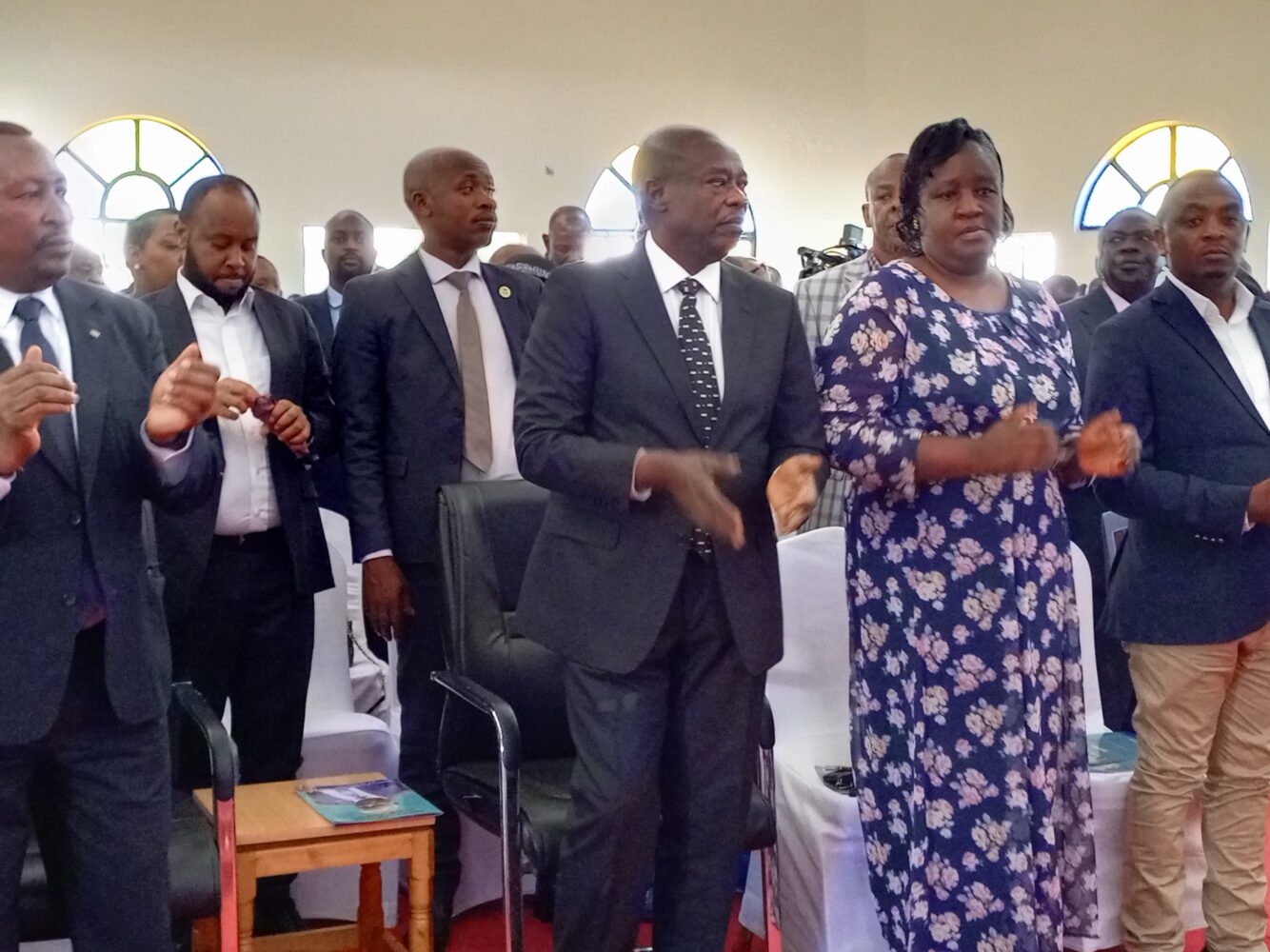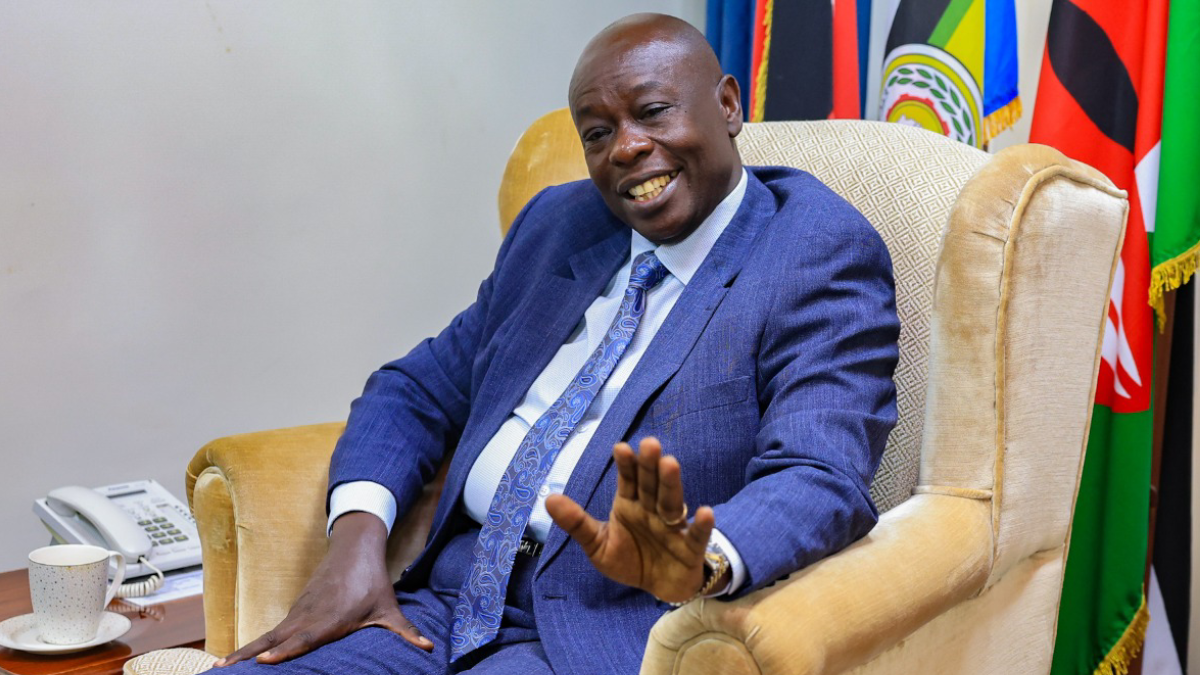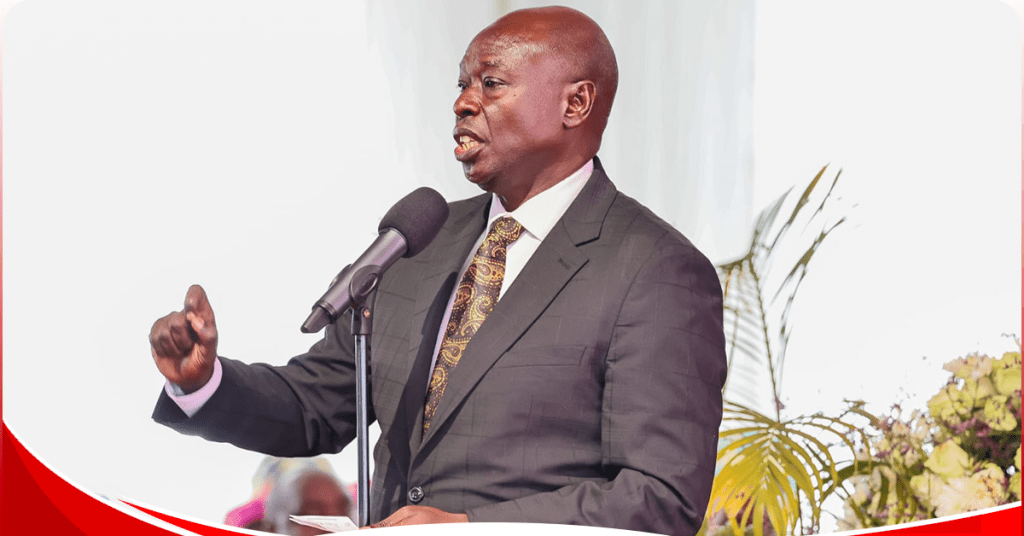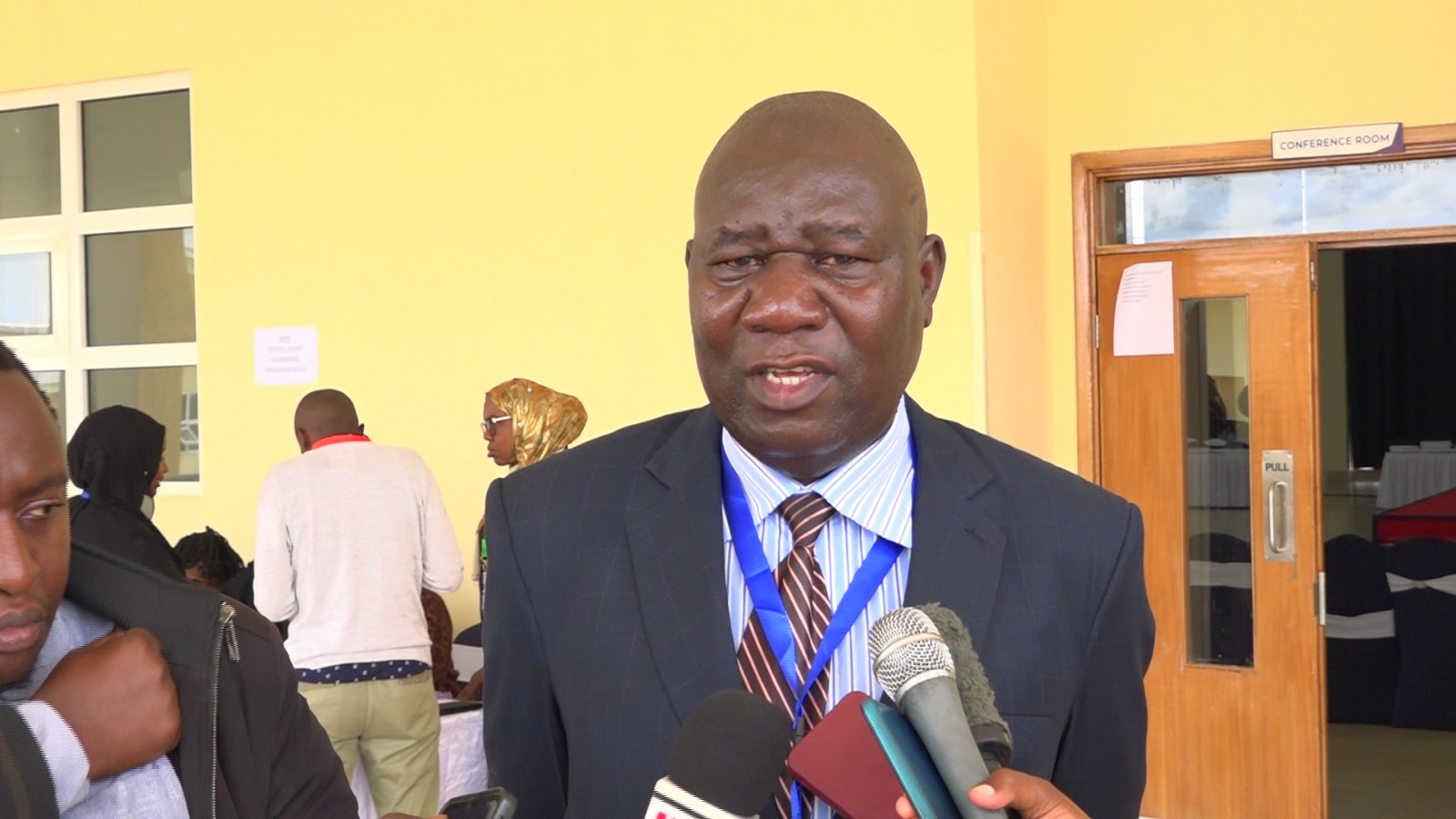Former Deputy President Rigathi Gachagua has accused the government of allowing illicit alcohol to flood Central Kenya.
Claiming it’s a deliberate scheme to weaken the region’s youth and suppress voter numbers.
Speaking in Naivasha on Sunday, Gachagua said the resurgence of harmful brews seems intentional and alarming.

“Since my removal from office, these destructive brews have returned in full force to destroy our people and reduce voter strength,” he stated.
According to him, local administrators, including chiefs, have allegedly been instructed to turn a blind eye to the crisis.

During his tenure, Gachagua spearheaded campaigns to eradicate illicit alcohol in Central Kenya, a fight he says has now been abandoned.
He blamed the current administration for neglecting the region and failing to honor promises made during the campaign period.
Gachagua also criticized President William Ruto for postponing his planned visit to Central Kenya, suggesting the President is avoiding the growing public frustration in the region.
“He says he’ll visit next year, hoping the anger will fade. But is it reducing or growing?” he asked pointedly.
The former Deputy President challenged the President to face the people directly and address their concerns instead of dismissing them.
“Why are those raising genuine concerns being insulted, called demon-possessed, or foolish? Leadership requires accountability, not avoidance.”
He further took issue with economic policies, highlighting the housing levy, NHIF reforms, and changes in higher education funding as key grievances affecting Central Kenya residents.
Black sheep in the Government
Gachagua argued that these policies are deepening economic hardship instead of providing solutions.
“I was removed because I spoke uncomfortable truths,” he said. “I couldn’t fit into a system built on deception.”
Since his exit from office in November, Gachagua has remained vocal, consistently criticizing the government for what he sees as broken promises and misplaced priorities.
His words reflect the growing discontent among many in Central Kenya, a region that played a crucial role in bringing the current administration to power.
Whether the government will address these concerns or continue to sidestep them remains a pressing question.












